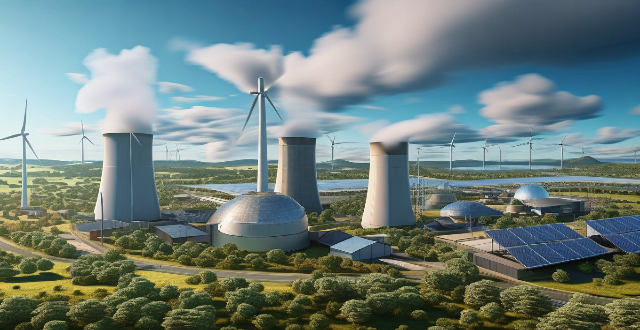Renewable energy sources are crucial for distributed energy systems due to their clean, sustainable nature and local generation capabilities. They reduce carbon emissions, enhance energy security, promote local economic development, improve energy efficiency, and enable innovation in these systems.

The Role of Renewable Energy Sources in Distributed Energy Systems
Renewable energy sources play a crucial role in distributed energy systems. These sources are clean, sustainable, and can be generated locally, making them ideal for use in distributed energy systems. Here are some of the key roles that renewable energy sources play in these systems:
1. Reducing Carbon Emissions
Renewable energy sources such as solar, wind, and hydro power produce no carbon emissions during operation. This makes them an important tool for reducing the carbon footprint of distributed energy systems. By using renewable energy sources, we can reduce our reliance on fossil fuels and help combat climate change.
2. Enhancing Energy Security
Distributed energy systems that rely on renewable energy sources are less vulnerable to disruptions in the traditional energy grid. This is because they can generate their own power locally, reducing their dependence on centralized power plants. This enhances energy security and ensures that communities have access to reliable power even during outages or other disruptions.
3. Promoting Local Economic Development
Investing in renewable energy sources for distributed energy systems can also promote local economic development. This is because the production and installation of renewable energy technologies often requires local labor and materials. Additionally, by generating their own power, communities can save money on energy costs and invest those savings back into their local economy.
4. Improving Energy Efficiency
Renewable energy sources are often more efficient than traditional energy sources. For example, solar panels convert sunlight directly into electricity without any waste heat. This makes renewable energy sources well-suited for use in distributed energy systems, where efficiency is key to ensuring that all users have access to reliable power.
5. Enabling Innovation
Finally, renewable energy sources enable innovation in distributed energy systems. As new technologies emerge, they can be integrated into these systems to further improve efficiency and reliability. For example, battery storage systems can be used to store excess energy generated by renewable sources for use during times when demand exceeds supply.
In conclusion, renewable energy sources play a vital role in distributed energy systems by reducing carbon emissions, enhancing energy security, promoting local economic development, improving energy efficiency, and enabling innovation. As we continue to face challenges related to climate change and energy security, it is clear that investing in renewable energy sources for distributed energy systems is essential for building a sustainable future.